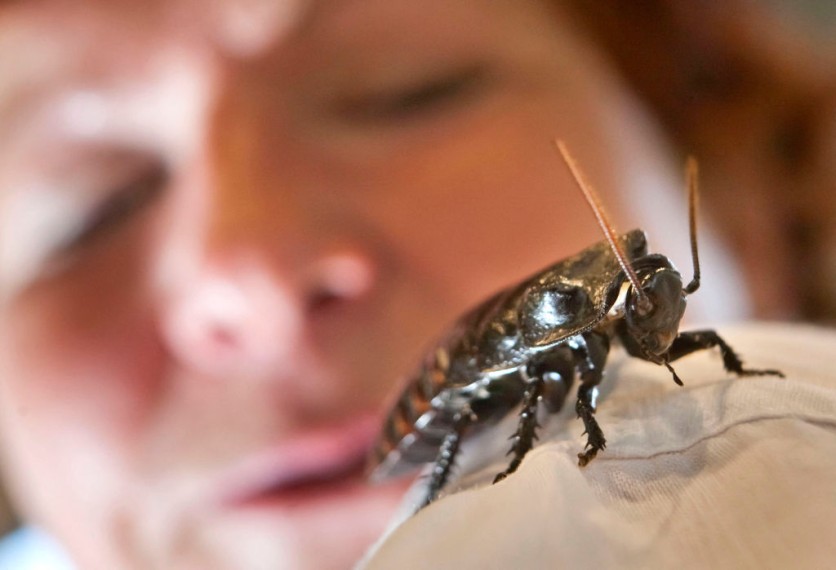A DNA sequencing study found that the German cockroach originated in East India and Bangladesh. German cockroaches, one of the most frequent urban pests, are not present in the wild.
The researchers compared DNA from 281 cockroaches from 17 nations to determine their origins. The German cockroach (Blattella germanica) split from Blattella asahinai 2,100 years ago, according to the study reported by ScienceAlert.
In 1767, Swedish biologist Carl Linnaeus named the German cockroach after its discovery in Eastern Europe during the Seven Years' War. According to research, it spread from the Bay of Bengal 1,200 years ago, perhaps through commerce and military operations. Around 390 years ago, European commerce enterprises drove a second migration to Indonesia.
The analysis also reveals that the German cockroach arrived in Europe 270 years ago and expanded internationally 120 years ago, as recorded. German cockroaches are prevalent due to worldwide trade, cultural linkages, and transportation and housing advances, according to the study.
Importance of the Latest Study on Cockroaches
Nocturnal German cockroaches are insecticide-resistant and have adapted to human surroundings, hence, pest control faces continual problems with rapid adaptability. To stay ahead in the human-cockroach arms race, scientists must grasp their evolutionary mechanisms as they design new pest-control measures.
A retired urban entomologist from the University of Florida, Michael E. Scharf, commended recent findings on the German cockroach's origins. He noted that the latest research "offers valuable insights into one of the most persistent urban pests."
Scharf also stated in an email that the latest knowledge stresses the "adaptability" of cockroaches' genome, which is crucial as humans seek to understand the rapid development of insecticide resistance in German cockroach populations, per CBC.
Scharf, who was not involved in the work, stressed the necessity of finding insecticide-resistant "genomic hotspots." He suggested studying roach DNA to improve pest control.
Scharf's colleague, entomologist Ed Vargo, said German cockroaches contaminate food, spread disease, and cause asthma and allergies. Vargo emphasized that controlling cockroach populations, especially in high-density and low-income homes, might reduce these health risks.
Vargo says the study emphasizes human-nature interdependence. "Rapid urbanization worldwide creates indoor environments that serve as major ecological systems," stated. "We must consider which species might survive and thrive in these settings as urbanization continues."

Cockroaches Spread Diseases
According to experts, cockroaches do not bite, but through their leg spines, they spread diseases like salmonella, staphylococcus, and streptococcus germs on food. The World Health Organization warned that cockroaches can spread dysentery, diarrhea, cholera, and typhoid fever.
A 2012 Allergy, Asthma, and Immunology Research paper found that cockroaches are prevalent indoor allergens. Excrements, bodily parts, eggs, and saliva contain allergen-causing enzymes.
The National Pest Management Association states that 63% of US homes have cockroach allergens, rising to 78%-98% in metropolitan regions.
Over-the-counter or prescription antihistamines, decongestants, nasal corticosteroid sprays, cromolyn sodium, leukotriene receptor antagonists, and desensitization can treat cockroach allergy symptoms. Asthmatics may need bronchodilators or anti-inflammatory medications.
It is also important to note to control the number of cockroaches in homes to prevent diseases spread by these unwanted guests. It can be done by limiting their access to water, food, and shelter will reduce the number of cockroaches in your home.
Here are some suggested actions to control cockroaches, per Healthline:
- Seal floor and wall fissures.
- Fix faulty pipes and dry, moist areas.
- Keep garbage cans covered, and use cockroach traps and baits.
- Store food in airtight containers, including cabinets;
- Wash the dishes immediately;
- Avoid leaving pet food out;
- Keep dishes clean;
- Remove food crumbs from tables, countertops, cooktops, and floors.
Related Article : Study Explains Why Wild Boars in Chernobyl Remained Radioactive Decades After Disaster

ⓒ 2025 TECHTIMES.com All rights reserved. Do not reproduce without permission.




